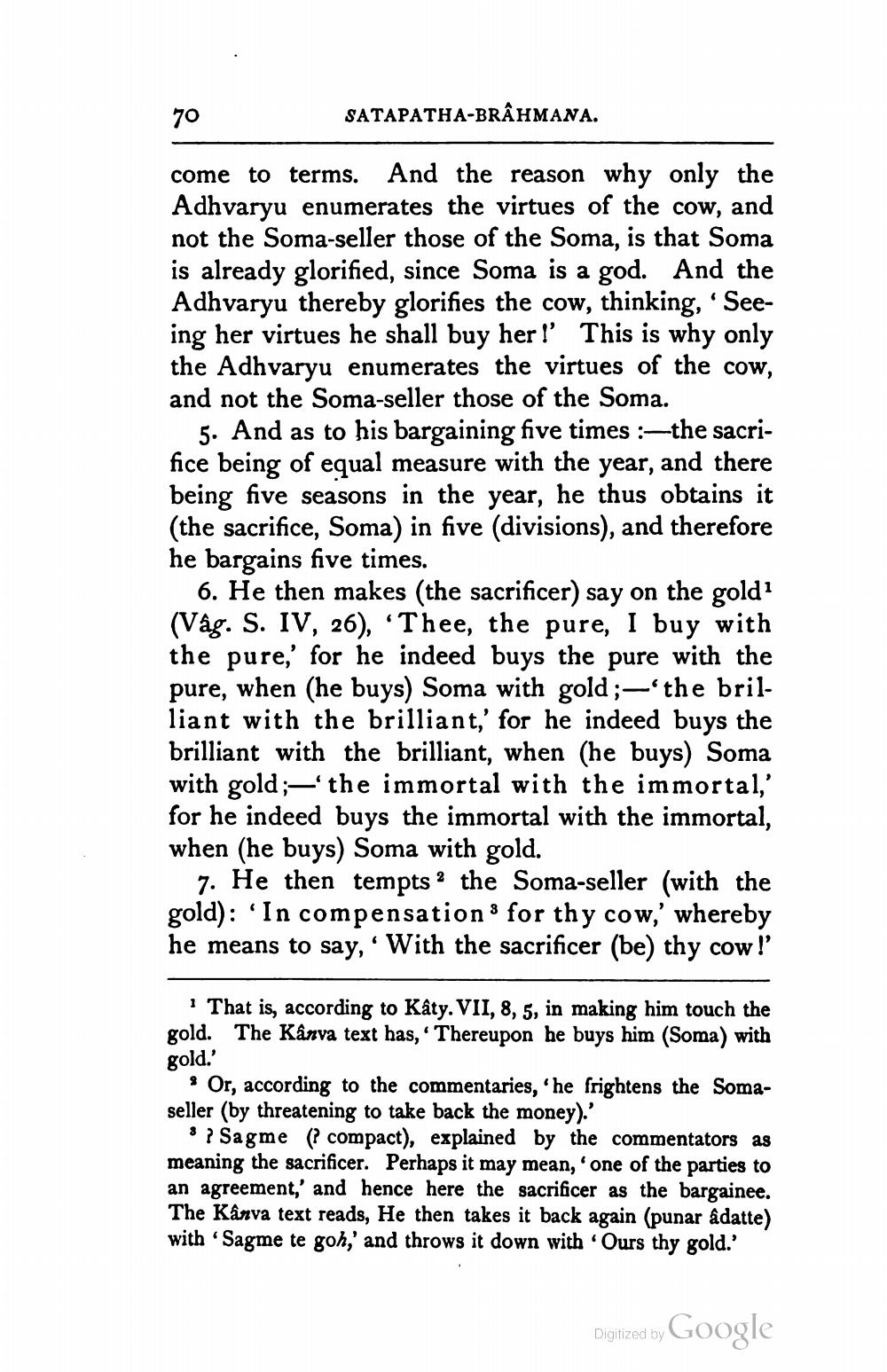________________
SATAPATHA-BRAHMANA.
come to terms. And the reason why only the Adhvaryu enumerates the virtues of the cow, and not the Soma-seller those of the Soma, is that Soma is already glorified, since Soma is a god. And the Adhvaryu thereby glorifies the cow, thinking, 'Seeing her virtues he shall buy her!' This is why only the Adhvaryu enumerates the virtues of the cow, and not the Soma-seller those of the Soma.
5. And as to his bargaining five times :—the sacrifice being of equal measure with the year, and there being five seasons in the year, he thus obtains it (the sacrifice, Soma) in five (divisions), and therefore he bargains five times.
6. He then makes (the sacrificer) say on the gold? (Vág. S. IV, 26), 'Thee, the pure, I buy with the pure,' for he indeed buys the pure with the pure, when (he buys) Soma with gold ;-—'the brilliant with the brilliant,' for he indeed buys the brilliant with the brilliant, when (he buys) Soma with gold;—the immortal with the immortal,' for he indeed buys the immortal with the immortal, when (he buys) Soma with gold.
7. He then tempts ? the Soma-seller (with the gold): 'In compensation for thy cow, whereby he means to say, ' With the sacrificer (be) thy cow!'
That is, according to Kâty. VII, 8, 5, in making him touch the gold. The Kanva text has,' Thereupon he buys him (Soma) with
gold.'
. Or, according to the commentaries, 'he frightens the Somaseller (by threatening to take back the money).'
8? Sagme ( compact), explained by the commentators as meaning the sacrificer. Perhaps it may mean, one of the parties to an agreement,' and hence here the sacrificer as the bargainee.
The Kanva text reads, He then takes it back again (punar adatte) with Sagme te goh,' and throws it down with Ours thy gold.'
Digitized by Google




